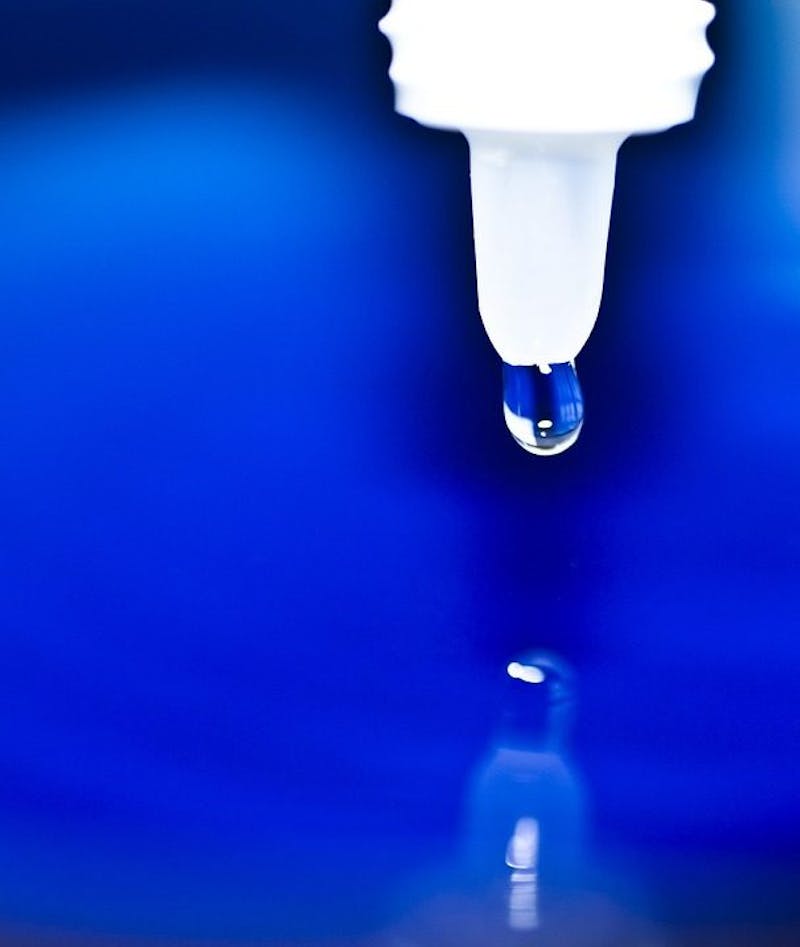
Dry eyes are a common condition people all over the world suffer from on a consistent basis. It occurs when there’s not enough tears to adequately lubricate the eyes. Anyone who has suffered from this condition understand how uncomfortable and sometimes painful it can be to deal with on a regular basis.
Dry eyes can sting and burn. While some people only experience dry eyes when they are in a certain environment, such as on a plane or near an air conditioner, others can experience eye dryness in any environment.
Treatments for dry eyes exist. They can make you feel much more comfortable and improve the quality of your life.
Before we delve into the treatments, though. It’s important to know what may be causing the condition.
The Reasons People Suffer from Dry Eyes
People suffer from dry eyes for many reasons. Some of those were already mentioned above, but there are some other causes you should know about.
#1: Medical Condition
Certain medical conditions can cause dry eyes. Some of these include:
- Diabetes
- Rheumatoid Arthritis
- Lupus
- Scleroderma
- Sjogren’s Syndrome
- Thyroid Disorders
- Vitamin A Deficiency
If you’ve already been diagnosed with these conditions, you likely have been experiencing the side effects of dry eyes for a while. While eye drops can help, there may be something else that can be done that won’t require you to carry that little bottle around with you everywhere.
Consider calling Kelly Vision Center at 877-718-7818 for more information.
#2: Medications
Many medications cause issues with tear production. The most common medications known to cause dry eyes are:
- Antihistamines
- Decongestants
- Hormone Replacement Therapy
- Antidepressants
- Birth Control
Medications used to treat high blood pressure, acne, and Parkinson’s disease are also infamous for causing dry eyes.
#3: Tear Gland Damage
Insufficient tears are produced when the tear gland is damaged. This gland can become damaged if a person suffers from inflammation due to an infection or eye allergy. Radiation can also damage the tear gland.
It’s important to seek the help of an ophthalmologist when you believe this could be the cause of your eye discomfort.
#4: Tear Composition Imbalance
Tears are made up of three basic layers:
- Oil
- Water
- Mucus
When this composition changes in some way, people can suffer from dry eyes. This could be because one of the glands may be blocked, such as the one at the end of the eyelid (meibomian glands). This usually occurs when there’s inflammation present, or the person suffers from a skin condition such as rosacea.
#5: Age
Age is one of the most common causes of dry eyes. After the age of 50, tear production slows down. This is especially true for women going through menopause because hormonal changes can also lead to a decrease in tear production.
Diagnosing Dry Eyes
While you may know for obvious reasons you suffer from the condition of dry eyes, an eye doctor (ophthalmologist) will need to diagnose you with it. The diagnosis is reached through a comprehensive eye examination. This will include an external examination of the eyelids and blink dynamics. The doctor may use a bright light and magnification tool to evaluate the cornea of each eye as well.
Tests will be conducted on not only the quantity of tears produced, but the quality of those tears, as that is a factor. A special dye may be used to better see tear flow and highlight any issues on the outer surface of the eye, which could be the cause of insufficient tears.
In addition to the examination and testing, the ophthalmologist will review your medical history to include any medications you are taking. He may also ask you about your environment to identify any risk factors in it. For instance, if you work in a warehouse where there is a lot of dust and fans blowing while you work, that could be the cause of your dry eyes rather than because of a tear composition imbalance.
Understanding what is causing eye dryness can help the doctor device a treatment plan.
Dry Eye Treatment
Ophthalmologists recommend the least intrusive treatment possible. For instance, if the condition is caused by environmental factors that can be controlled, changes to the environment should happen first. If it’s not possible to change the environment, the eye doctor may prescribe eye drops for lubrication. Over-the-counter artificial tear solutions can be used as many times as needed.
It’s always best to purchase preservative-free artificial tear drops for reduced risk of irritation.
Prescription eye drops are available. The eye doctor may prescribe them if over-the-counter tear solutions do not work. In addition to using prescription eye drops, using warm compresses and massaging the lids are also recommended.
If eye drops do not help, the ophthalmologist may suggest having a procedure that blocks or permanently closes the tear ducts. This keeps the tears that flow to the eye there longer. Blocking the tear ducts involves placing silicone or gel-like plugs in the ducts. These can be removed, if needed.
Dry Eye Treatment in Long Island and Manhattan
Contact Kelly Vision Center if you suffer from dry eyes by calling 877-718-7818. Ophthalmologist James R. Kelly, MD has many years of experience successfully helping people who suffer from dry eyes. He has two conveniently located office in Manhattan and Garden City. Call him now for an appointment for relief from your dry eyes.


